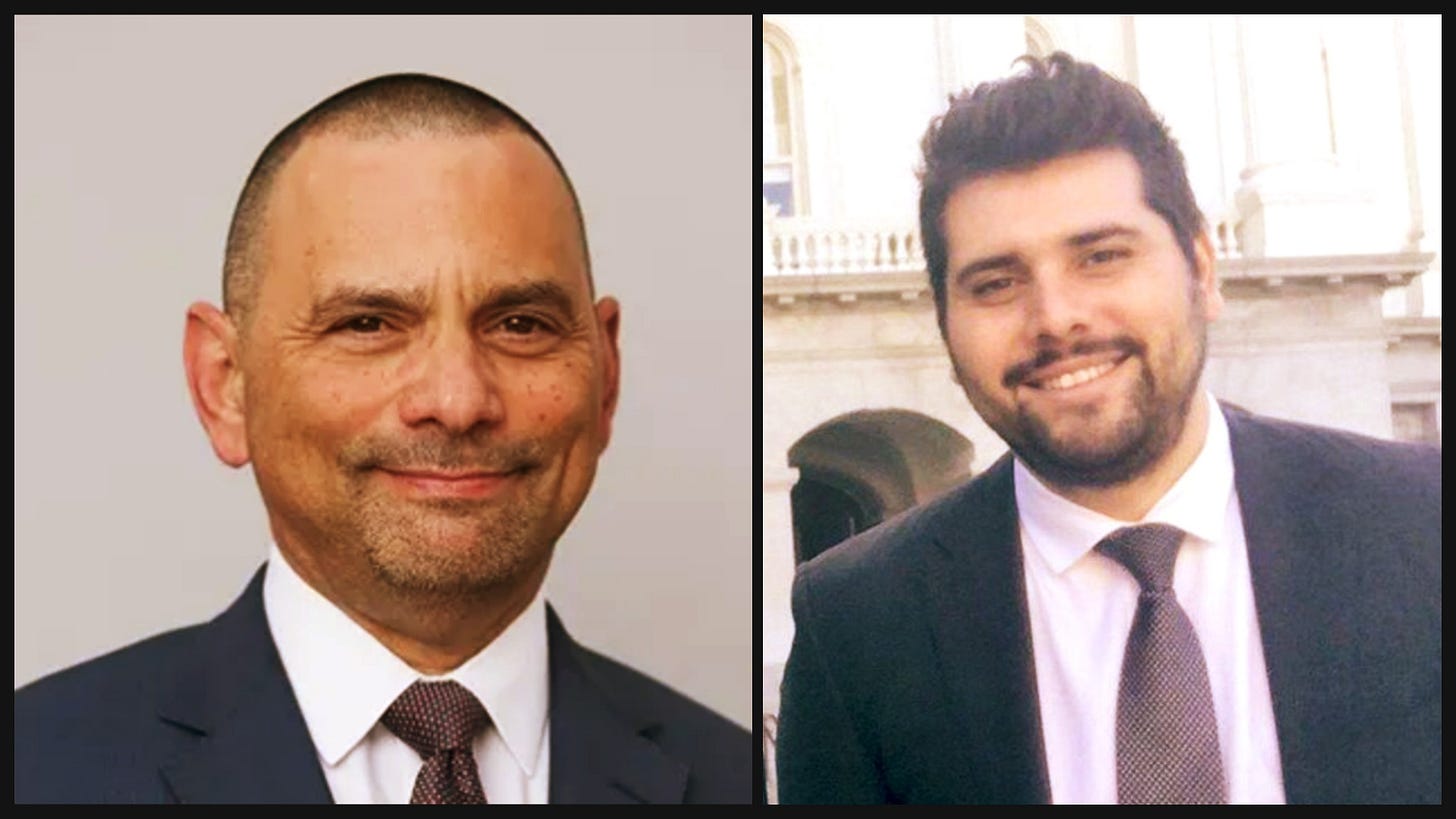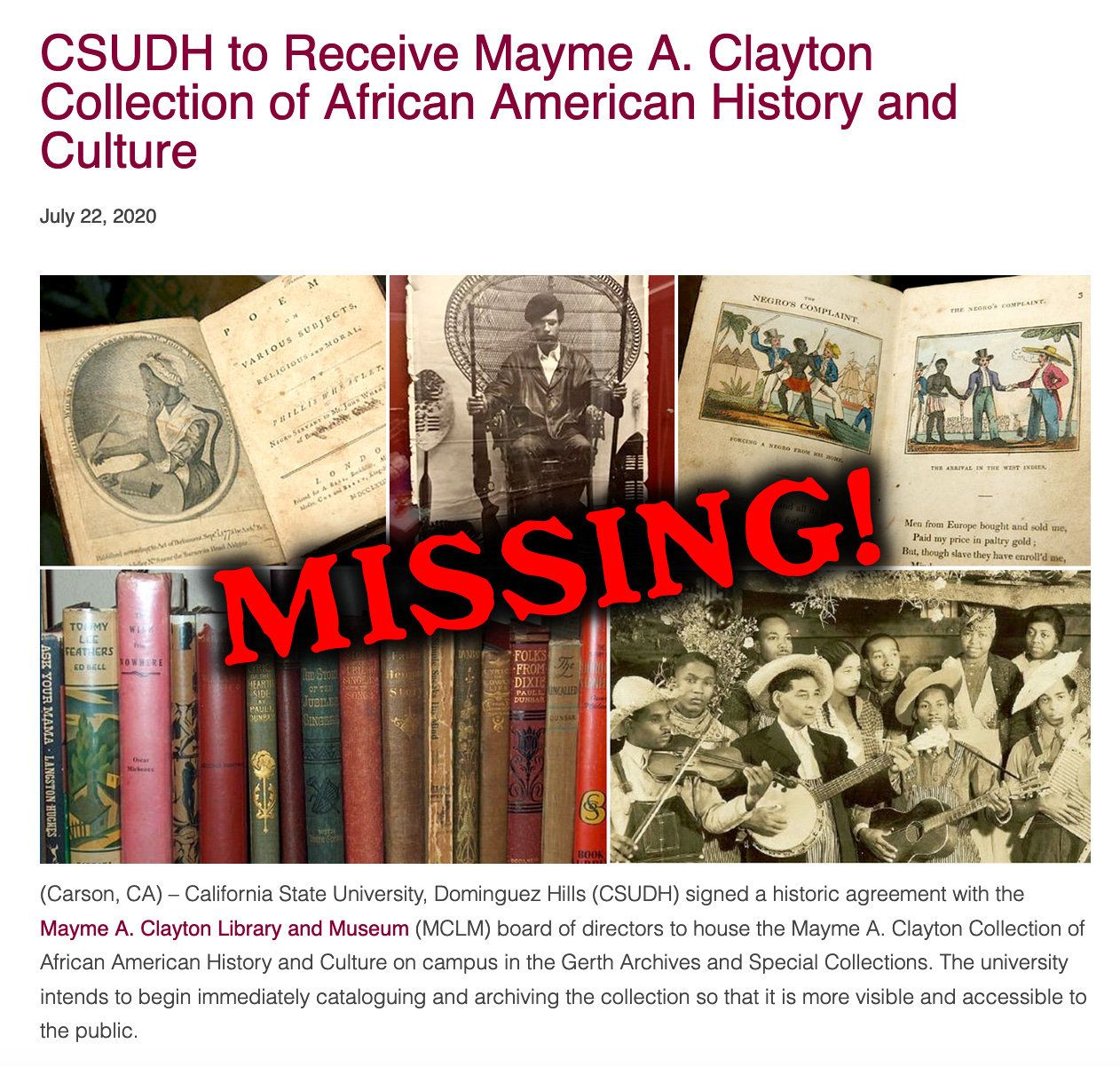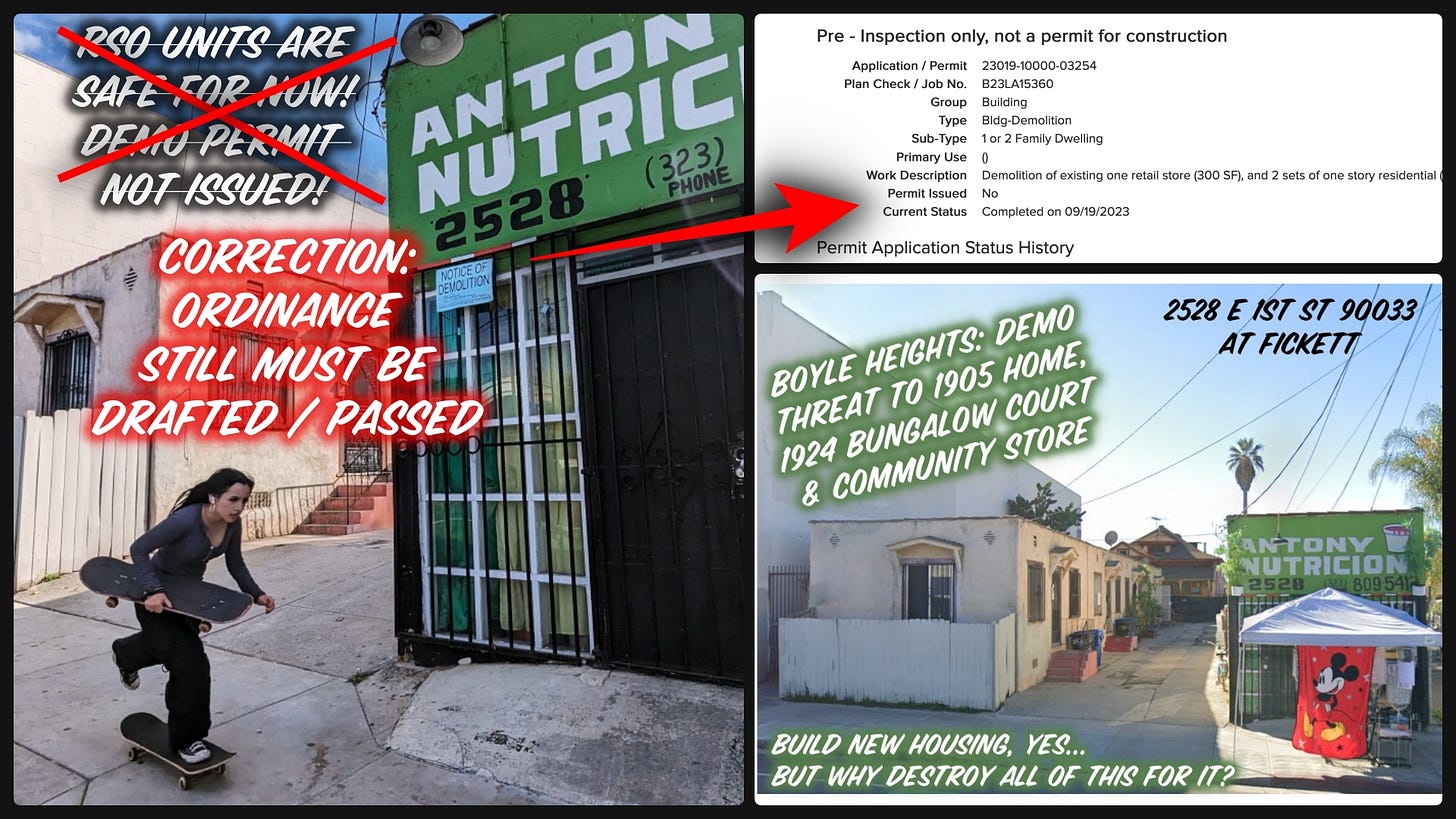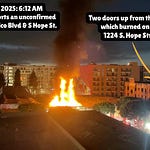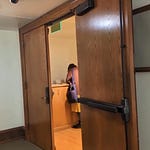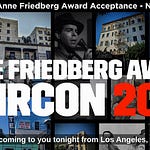Gentle reader,
After spending two more days at the New Federal Courthouse, taking copious notes on testimony from City Council aide George Esparza and lobbyist Morrie Goldman in the public corruption trial of Deputy Mayor Ray Chan, we wanted to scream.
Instead, we went down to the Arts District to take a spin around a building that plays a central role in the case of the civil servant accused of conspiring with confessed racketeer councilman Jose Huizar: Carmel Partners’ 520 Mateo project, aka Alloy.
The tower, absurdly oversized and shiny in a district of handsome, low-slung early 20th century brick warehouses, only received its permits, less the promised affordable units for artists, after executive Neils Cotter paid off the councilman.
It now blocks the view from the iconic turned attractive nuisance Sixth Street Viaduct.
Carmel Partners, rebranded CP Employers, wasn’t the only developer corruptly profiting off Los Angeles, but their crimes don’t need to be proven in court: the Feds made a deal, for a meager $1.2 Million fine and admission of guilt. CP still owns the huge tower, which still lacks the affordable units Huizar deleted for stacks of cash.
Not much of a deal, if you ask us. As a project approved through illegal acts, by a politician defrauding his constituents, 520 South Mateo could be seized under California’s Section 1090, and turned into affordable housing for Angelenos. So, too, could other tainted buildings. What are the odds that Cotter used the same pay-for-play strategy with Huizar’s “best friend” Herb Wesson to grease CP’s massive Cumulus project in his South Los Angeles district?
But the city’s made it clear through inaction that it won’t do anything to punish developers, lobbyists and others that bribed Huizar and his indicted and unindicted co-conspirators. After all, those in power are still doing business with them. And the FBI has folded up its L.A. public corruption tent. But anyone can bring a Section 1090 case. Maybe you will!
Sitting in Judge John F. Walter’s courtroom is a surreal and exhausting experience, crowded yet lonely. So many jurors and government lawyers, a pinch of defense attorneys, two or three journalists. If you need a reminder that democracy dies in darkness, stop by the courthouse and look through the picture windows. The folded plates on the north side look out at Los Angeles City Hall, site of many of the crimes prosecuted within. The flat glass on the east side has a wonderful view of the vacant Los Angeles Angeles Times campus, which we landmarked and which Jose Huizar marked for demolition after soliciting $50,000 from the developer. That’s not part of this trial, though, and demolition is still planned.
On Friday, we were among the only civilians present to hear George Esparza, the cooperating witness who was Huizar’s aide over a decade of escalating crimes, describe how they stole the 2015 election from Gloria Molina with unreported, illegal foreign funds. Chinese developers with pending projects covered campaign expenses, from office supplies to postage stamps to toys for tots.
And as Esparza testified, we finally understood why a powerful, experienced politician like Gloria Molina had so visibly phoned in her campaign. She knew the fix was in, and Huizar couldn’t lose, so she didn’t try too hard.
It really bugged us that there was not more media in the room, and that concerned citizens aren’t attending and taking notes. Los Angeles isn’t going to fix itself. The racket didn’t close up shop when Jose Huizar got arrested. A city without a newspaper is the new gold fields, and vast fortunes are being made from L.A.'s marrow. It’s bad now, but it can still get worse. We hope it won’t.
There weren’t a lot of revelations in Friday’s and Monday’s testimony, just a grueling litany of how Huizar’s office operated: as a criminal syndicate interested in accruing personal benefits for the councilman and select staffers in exchange for official acts, and how defendant Ray Chan steered Chinese developers to Huizar and facilitated a financial relationship.
But a few things stood out to us, and we’ve noted them for you.
Although their careers have been wrecked, and each faces prison time, council aide Esparza and lobbyist Goldman seemed contrite and somewhat relieved on the stand. If it’s an act, it’s the smart way to play it.
Both started young in Los Angeles City Hall—Esparza hired because his mom went to elementary school with Huizar, Goldman running Mike Hernandez’ office from 1991 until the councilman’s 1997 cocaine bust—and each described a growing comfort with corruption. They were indoctrinated into a culture that has long existed to serve developers first, constituents second, if at all.
Huizar’s bribe seeking was unusually brazen, but not abnormal. And it would have been impossible without a tight network of competent, complicit staffers managing impatient developers, tight city planning timelines, influential council agendas and the politician’s swinging moods and appetites.
We learned that one prominent Downtown developer didn’t get special treatment from Huizar’s office: Shanghai Construction declined to help pay off the 2015 election debt. Maybe that’s why the Perla on Broadway tower sacrificed so much buildable space for a setback that respects the historic height limits in the National Register district. It blends in, unlike Huizar’s known pay-for-play projects.
As for defendant Ray Chan, a tiny old fellow with a pony’s mincing gait, he is so elusive that we suspect he was trained to leave no trace. His phone, when seized by the FBI, was empty. The work of keeping CD14 and the Chinese developers Chan brought to the office in lockstep was done almost entirely by Chan’s underling and Huizar’s, each named George (Esparza/Chiang). And yet the government’s case makes it plain that most of the big Downtown L.A. developments exist because Chan played matchmaker, translater and fixer between Chinese billionaires and Huizar—doing much of this while still employed by the city.
When the Feds finally interviewed the very connected Morrie Goldman, he lied that his lobbying clients Carmel Partners had not paid Huizar for favorable votes, then requested a second interview a month later to admit that they had. Why? The first session had been “overwhelming,” and he believed he was being truthful. But afterwards, with the pressure of a felony indictment weighing on him, “I had an opportunity to remember things… I was recalling my life, recalling meetings, and I thought, oh! That really was wrong. That’s when I reached back out to the government.”
Since leaving Los Angeles and shutting down his one-man firm, Goldman has grown a pony tail and reinvented himself as a sommelier and vineyard tour guide on the Central Coast. He’s facing prison time. The executive who bribed Huizar, the corporate owners who stand to profit from the bribe are not. Why?
When Huizar was first busted in November 2018, we were excited and hopeful. But nearly five years on, nothing has really changed in City Hall. Developers still get everything they want, while constituents scream themselves hoarse, then, if they’ve got the means to, move somewhere less dirty. A few of us stand firm and fight for the city we love.
If the government wanted, it could flip through the entirety of Jose Huizar’s term as head of the powerful PLUM committee and investigate every project where a reasonable appeal got rejected. It could serve warrants on more developers, lobbyists and city staffers, and we bet find the exact same thing happened in other council offices.
It could look into why the bar chart of Ray Chan’s cell phone use from 2014-2017 shows Herb Wesson’s chief of staff Deron Williams up top, and the government’s exhibit list includes him first in the section on Other Pay-To-Play.
Or it could merely dig into what transpired when Huizar flew to China in November 2015 to meet with executives from Greenland, Oceanwide, City Century/ShengLong Group and Hazens. Only the last of these companies has made a deal with the Feds, so presumably these cooperating witnesses know what transpired that month in Arcadia, when Huizar told the two Georges to get lost, and remained alone at the restaurant table with Hazens’ Chairman Fuer Yuan and hotel GM Greg Sun for 45 minutes. They weren’t just talking favorite shopping destinations.
But the FBI no longer has a dedicated Los Angeles corruption tip line. D.C. is done. Now it’s the D.A.’s office that’s doing this work, and we hope they do more of it.
Thought question: is Jose Huizar a sociopath or just a selfish creep? Since he never testified in his own or any other trial, and because his staff kept him away from constituents except in carefully controlled settings, it’s hard to know. George Esparza testified that after his first FBI interview, he told his boss they were being watched. This exchange took place at the DoubleTree Hilton in Little Tokyo, apparently in the rooftop garden, on June 22, 2017. Huizar showed up in City Council the next day, showing no signs of a sleepless night. So we’re leaning towards sociopath.
Finally, this: In an incriminating text message to Esparza, Huizar wrote about his illegal scheme to raise and control a million dollars in a PAC war chest to ensure his termed-out council seat was won by his inexperienced, recalcitrant wife. (Morrie Goldman, who formed the PAC and organized a fundraiser in his loft, groused that the lady had no fire in the belly and no political vision.) Twice, Jose Huizar typed the first name of the mother of his children, the victim of his serial infidelity, and his hand-picked replacement.
And twice, he misspelled Richelle, Rochelle.
Selfish creep or sociopath? What difference does it make? (We’re neither, so even though we know Huizar’s cell phone number from the evidence shown, we’re not publishing it. We thought about it, though!)
Los Angeles deserves so much better—but until the corrupt City Hall machine is scrapped and rebuilt fresh, we’re unlikely to get it. And new generations of competent, young staffers will continue to be indoctrinated, their talents squandered, their characters warped, our city and the world the worse for it. Until then, we’ll try to keep our sense of humor and hope intact by goofing on every corruption tower we see, and by putting the pieces together to help keep others who care informed.
Saturday’s tour is The Run, a time travel trip through a lost world of pre-liberation Gay culture, to discover little magazines and ancient bath houses, sites of protest and connection, true love and terrible loss, with some very special guests expected. Join us, do!
Yours for Los Angeles,
Kim & Richard
Esotouric
Psst… If you’d like to support our efforts to be the voice of places worth preserving, we have a tip jar and a subscriber edition of this newsletter, vintage Los Angeles webinars available to stream, in-person tours and a souvenir shop you can browse in. We’ve also got recommended reading bookshelves on Amazon and the Bookshop indie bookstore site. You can share this post to win subscriber perks. And did you know we offer private versions of our walking and bus tours for groups big or small? Or just share this link with other people who care.
UPCOMING BUS & WALKING TOURS
• The Run: Gay Downtown History (Sat. 3/23) • Franklin Village Old Hollywood (Sat. 3/30) • John Fante’s Downtown Los Angeles Birthday (Sat. 4/6) • Raymond Chandler’s Noir Downtown (Sat. 4/13) • Human Sacrifice: The Black Dahlia, Elisa Lam, Heidi Planck & Skid Row Slasher Cases (Sat. 4/20) • Downtown Los Angeles is for Book Lovers (Sat. 4/27) • Alvarado Terrace & South Bonnie Brae Tract (Sat. 5/4) • Charles Bukowski’s Westlake (Sat. 5/11) • Hotel Horrors & Main Street Vice (Sat. 5/18) • Evergreen Cemetery, 1877 (Sat. 5/25) • POP – Preserving Our Past (Sat. 6/1) • Westlake Park (Sat. 6/8) • Highland Park Arroyo (Sat. 6/15) • Film Noir / Real Noir (Sat. 6/29) • Angelino Heights & Carroll Avenue (Sat. 7/13) • Know Your Downtown L.A.: Tunnels To Towers To The Dutch Chocolate Shop (7/27)
CLOSELY WATCHED TRAINS
Moonlighting in a Hollywood used bookstore, university librarian Mayme A. Clayton built a great collection of African-American books and ephemera, and ensured the 2 million items would be accessible in Culver City's old courthouse. In 2019, Supervisor Mark Ridley-Thomas—since convicted of public corruption—suddenly announced plans to evict the Library for a constituent services center. The community was outraged, but Ridley-Thomas wouldn't budge. The building did not become a services center, but instead was taken over by a private non-profit biotech organization, BioscienceLA, funded by Ridley-Thomas. Concern about what would happen to Clayton's collection was eased by the announcement that a deal had been made to house it at CSU Dominguez Hills. But in his latest blog post, bookstore historian Paul Hunt reveals that the collection never actually arrived at CSUDH. This priceless collection, held in the public trust and displaced by a known racketeer, has simply vanished!
Director Chester Franklin spent a 1920s fortune on the foundations of a Cahuenga Pass castle, now home to lizards, coyotes and songbirds. A developer wants to destroy it. If you'd like to help save this unfinished old Hollywood landmark, click here.
Some months back, we broke the ugly news of a pending demo permit to the 2528 1st Street Boyle Heights bungalow court tenants, and asked CD14 to help. Glad to see them fighting back. It is depraved to buy RSO housing intending to displace people and redevelop.
Raymond Chandler as a writer of comic operettas in the style of Gilbert and Sullivan? It's not fiction—this really happened, when he was a young dairy worker in 1910s Los Angeles. And ten years ago this week, Kim uncovered this real life mystery!
On February 1, 2012 we joined our friend Gordon Pattison in City Hall to celebrate the death of the CRA and to memorialize the beautiful people and landmark buildings on Bunker Hill destroyed by bad, failed public policy. Stay for John Walsh—he's on fire!
A wild East LA Area Planning Commission hearing, as the majority opposes a market rate 5 over 1 in the Boyle Heights business district, rejects scare tactics about legal exposure, all to protect RSO tenants. If Karen Bass fires them all, it will be war.
Very moved to read in the Los Angeles Times about the reversal of our friend Lupe Breard's sketchy eviction and how she gave thanks at the crypt of St. Vibiana under the Cathedral. The saint was displaced by redevelopment, and watches over all L.A. tenants.
The reopening of Café Tropical, which wasn't just home to yummy guava cheese pastries, but a recovery community clubhouse, is a small miracle. We hate seeing legacy businesses shutter, and wish more of them could pass to new operators like this one has.
In The Dusty Archive newsletter, Mike Callahan provides some helpful hints for tracking down case files and permits—essential tools for staying above water in the tidal wave of redevelopment hitting L.A.'s historic neighborhoods.
Now that the trailer for Chris Pine's notorious comic noir about a freaky civic gadfly has dropped, we're asking... is Zuma Dogg the Real Poolman? Check ZD out in an astonishing 2006 anti-corruption rant that conjured up L.A.'s grim present and let us know what you think!
Saddened to hear from a Hollywood tour guest last Saturday that Field Deputy Josef Siroky is no longer working for Nithya Raman's CD4 office. He was such a breath of fresh air helping dedicate the Vedanta Square sign just a few weeks ago, passionate about L.A. and being of service. We miss him already!



